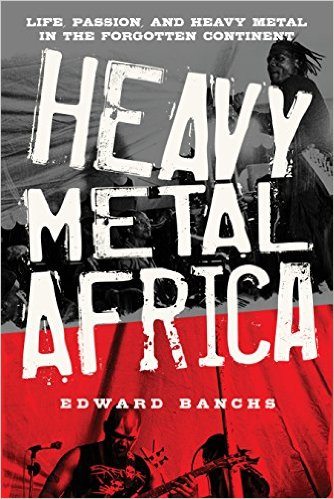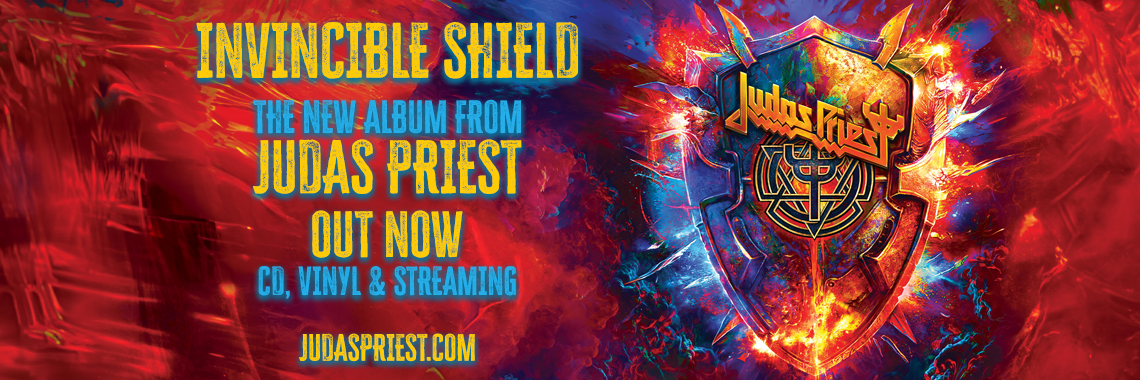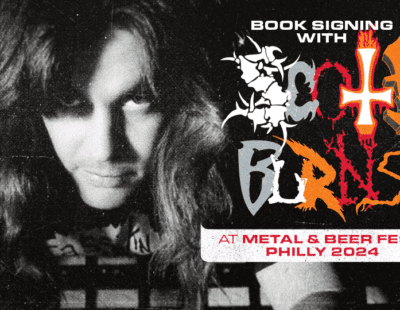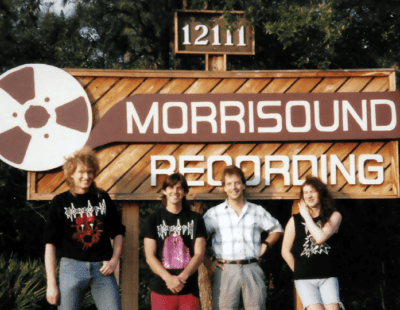
At this point in metal history, it’s widely accepted that the genre is a global passion that knows no cultural or ethic boundaries. A slew of films, books and magazine articles have documented the metal scene in the United States, Mexico, Norway, Sweden, Japan, India and elsewhere. However, there been precious little honest exploration of the metal scene in Africa, a continent that has a population of well over one billion. Writer Edward Banchs, who grew up in Decibel’s home state of Pennsylvania, set out to change that. Banchs, who pursued African studies in graduate school, made multiple trips to the continent dating back more than a half-decade ago. His new book Heavy Metal Africa is a brilliant take on not just an overlooked metal culture but a continent that is often forgotten or marginalized. It’s part travelogue, part memoir and part anthropology. Banchs talked to Decibel about his many trips to Africa and writing his book. Heavy Metal Africa (Word Association Publishers) is now available for purchase and is highly recommended. Please support independent journalism and small publishers.
When did you get the idea to investigate the heavy metal scene in Africa?
It started through a conversation I had with a friend in graduate school. I was getting a master’s in African Studies and he asked me if I knew anything about metal in Africa, and I had to say very little. I was waiting for someone to write an article, or see it covered on television. Sam Dunn didn’t talk about it in his films. I decided to just go because I have the passion for it, and the training. I also have a lifelong passion for metal. This was a collision of these two passions. I wanted to tell the story. It ended up being bigger and deeper than I thought it was. There’s been so much work done on metal in South America and Mexico, Europe and Asia. Despite the fact that Africa has a big part of the world’s population no one had made any inroads with the metal scene there. Part of that might be perception that people might have. I don’t want to insult potential readers but I don’t think people know Africa. Throughout the years I’d explain my trips to people at airport counters or immigration and they’d say “really?” They just expected something else. The places I went to are very connected – the Internet has done that. But I think metal wasn’t covered there because people had an idea of what they thought Africa was and metal wasn’t what they expected.
How did you tackle this project? How long was it between your first trip and final draft?
It was five years between when it started and when I finished. I was living in London going to graduate school and while I was finishing coursework I started researching this book. It was a distraction but I really was focused on it. I’ve done a number of trips anywhere from a month to two months. I embedded myself in the scene. I went on tours with bands. I watched a band in Botswana record an album. I went every year and then came home and drafted a chapter or two from my experience. Then I’d start saving enough money to go back again. Lucky for me, I got a job at a restaurant and didn’t need to spend a lot on groceries.
How did you make inroads into the metal culture and communities in Africa?
I started with very, very little. The first time I was in Cape Town was in 2007 I was in a record shop in a mall. I asked (the clerk) if they had any rock or heavy metal and he said: “We have about five records.” He pointed me in the right direction. At the time one of my favorite bands Dark Tranquility had released an album called Fiction. It was there – the last record I expected. When I went to pick it up another hand went for it at the same time. That guy, Craig, is still a friend of mine. He was sort of my guide. He eventually took me to a metal bar and a few conversations there made me realize there were other bands. I also started looking up bands in South Africa and didn’t see much. So I asked Craig to put me in touch with people in bands. That was enough to start. I just committed to going back.
So a lot of connections were made the old school way, via word of mouth, not through the Internet.
I thought I could write the book by just sending a bunch of e-mail queries. But soon I realized I had to go when that book failed miserably. So it became a show and tell and a travel narrative. Once I was on the ground things started to open up. I stated learning about the metal scene in the townships, metal in Soweto, and the African death metal scene. I thought there would just be a few bands in Cape Town – I didn’t know it would go this deep.

As a white guy from Pennsylvania, how did the fans and bands receive you? Did you ever have any problems?
At first they were curious about my intentions. In South Africa, the word got around. I started a Facebook page for my work and a bunch of musicians reached out, including musicians in Kenya. They soon realized I knew a lot and was coming to them with a genuine curiosity as a metalhead. I was ripping records with them, telling them what records to check out and all of a sudden we had this great connection. They knew I took them seriously and not as a novelty.
What is the quality of metal coming out of Africa now?
A lot of it is very good. South Africa is ahead of the curve because there are just more bands and more competition.
How has the book been received by the people you chronicled?
Some of the people told me they were moved by what they read. I wanted to talk not just about metal but the countries that I visited. The book also has discussions about poverty in Madagascar and what is really going on in post-apartheid South Africa. A lot of people came back to me and said they were moved. Some of these things don’t get talked about much.
You obviously did your academic homework but the book read more like a compelling human-interest story and a travelogue.
I emphasize this a lot – you don’t need to be a metalhead to read this book. Some of those readers were confused by the terms metalcore and grindcore and black metal. But outside of that the book was about taking them to places they haven’t been.






